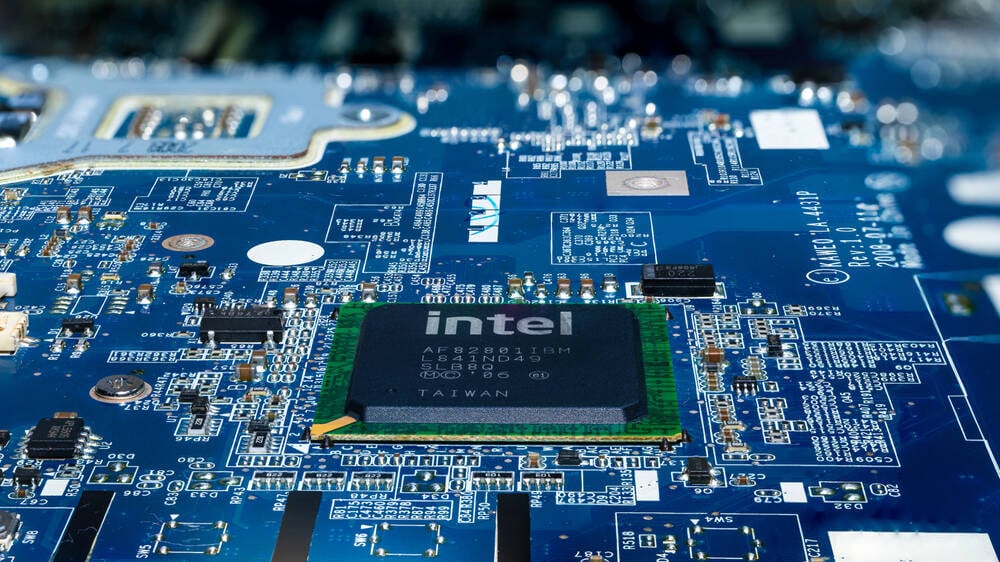Intel To Build $4.6B Assembly, Testing Site In Poland

Intel will spend up to $4.6 billion building an assembly and testing facility located outside Wroclaw, Poland.
The announcement comes more than a year after Intel shared its plan to expand its presence in the country. While much of the fanfare around Intel's foundry push has centered around fabrication sites in the US and Germany, the Polish facility will play a supporting role in the chipmaker's European expansion.
Once complete in 2027, Intel says the facility will employ 2,000 full-time workers, with the goal of taking completed wafers from neighboring fabs, cutting them down into individual chips, and finally testing and packaging them.
Intel notes that the facility will also be able to accept individual chips for assembly into final products, in line with the promise of Intel Foundry Services with its advanced packaging technologies. Many of Intel's internal products rely on third-party manufacturing from the likes of TSMC. The company's Ponte Vecchio series of datacenter GPUs is just one example.
While Intel says it will invest up to $4.6 billion in the site, it's not clear how much of that could be covered by local government subsidies or by funds made available under the newly passed European Chips Act.
The decision to build the facility in Poland is less of a mystery. The x86 giant has existing offices in Gdańsk and would put assembly services in relative proximity to its planned Magdeburg, Germany fab site.
"Poland is already home to Intel operations and is well positioned to work with Intel sites in Germany and Ireland. It is also very cost-competitive with other manufacturing locations globally and offers a great talent base," Intel CEO Pat Gelsinger said in a statement.
- Chinese chipmaker insists it has Intel on-side, not inside
- Nexperia left off subsidies list as Germany chips away at Chinese connection
- Former exec accused of trying to clone entire Samsung chip fab on Chinese soil
- Intel approached to take on key investor role in Arm IPO
However, that proximity may not mean much if Intel can't get the German government to agree on funding for fab. Intel has been trying to convince Germany officials to increase their contributions to the project for months now with little success to show for it.
Inflationary pressures and rising material and labor costs have previously been cited as the cause of the delay, but it essentially boils down to Intel no longer being happy with the €6.8 billion in German cash it's already been promised.
Earlier this week, Germany's finance minister put the kibosh on the whole idea, saying there were no more subsidies available to help Intel build the fab.
Just two days later, it appeared the country may have found a few billion Euros under the couch cushions after all, when local media reported that officials were just days away from a €9.9 billion subsidy agreement. ®
From Chip War To Cloud War: The Next Frontier In Global Tech Competition
The global chip war, characterized by intense competition among nations and corporations for supremacy in semiconductor ... Read more
The High Stakes Of Tech Regulation: Security Risks And Market Dynamics
The influence of tech giants in the global economy continues to grow, raising crucial questions about how to balance sec... Read more
The Tyranny Of Instagram Interiors: Why It's Time To Break Free From Algorithm-Driven Aesthetics
Instagram has become a dominant force in shaping interior design trends, offering a seemingly endless stream of inspirat... Read more
The Data Crunch In AI: Strategies For Sustainability
Exploring solutions to the imminent exhaustion of internet data for AI training.As the artificial intelligence (AI) indu... Read more
Google Abandons Four-Year Effort To Remove Cookies From Chrome Browser
After four years of dedicated effort, Google has decided to abandon its plan to remove third-party cookies from its Chro... Read more
LinkedIn Embraces AI And Gamification To Drive User Engagement And Revenue
In an effort to tackle slowing revenue growth and enhance user engagement, LinkedIn is turning to artificial intelligenc... Read more

